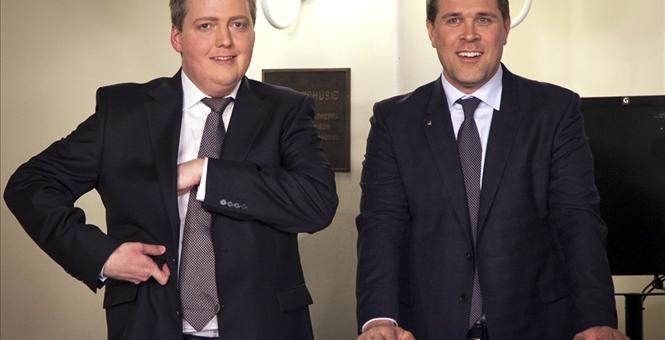REYKJAVIK, Iceland (AP) — In a dramatic about-face, Icelandic voters have returned to power the center-right parties that led the national economy to collapse five years ago.
Videos by Rare
With most votes counted early Sunday, the conservative Independence Party and rural-based Progressive Party — who governed Iceland for decades before the 2008 crash — each had 19 seats in Iceland’s 63-seat parliament, the Althingi.
The parties, who are promising to ease Icelanders’ economic pain with tax cuts and debt relief, are likely to form a coalition government.
Voters shunned the Social Democrat-led coalition that has spent four years trying to turn the country around with painful austerity measures. The Social Democrats took nine seats and their former coalition partners the Left-Greens seven.
The pro-Europe Bright Future party took six seats and online freedom advocates the Pirate Party three.
“We are very happy, we are very grateful for the support that we see in the numbers,” said Independence Party leader Bjarni Benediktsson.
Either Beneditksson or Progressive Party chief Sigmundur David Gunnlaugsson is likely to be Iceland’s next prime minister.
The shift to the right following Saturday’s parliamentary election will almost certainly shelve Iceland’s plans to join the European Union, with which it has begun accession talks. Both the Progressives and Independents oppose joining the 27-nation bloc.
The two parties governed Iceland for several decades, often in coalition, overseeing economic liberalization that spurred a banking and business boom — until Iceland’s economy crashed spectacularly during the 2008 credit crisis.
A volcano-dotted North Atlantic nation with a population of just 320,000, Iceland went from economic wunderkind to financial basket case almost overnight when its main commercial banks collapsed within a week of one another.
The value of the country’s currency plummeted, while inflation and unemployment soared. Iceland was forced to seek bailouts from Europe and the International Monetary Fund.
Since then, Iceland has in many ways made a strong recovery. Unemployment has fallen and the economy is growing.
But inflation remains naggingly high, and many Icelanders still struggle to repay home and car loans they took out — often in foreign currencies whose value soared after the crash — in the years of easy credit.
Some blamed the outgoing government of Prime Minister Johanna Sigurdardottir for agreeing to internationally approved austerity measures and accused it of caving in to international pressure to compensate Britain and the Netherlands for their citizens’ lost deposits in the failed online bank Icesave. Icelanders have twice rejected repayment deals agreed to by Sigurdardottir’s government.
Despite being widely blamed for the financial meltdown, the Independents and Progressives say they are now best placed to lead the economic recovery.
The Progressives have promised to write off some mortgage debt, taking money from foreign creditors. Benediktsson’s Independence Party is offering lower taxes and the lifting of capital controls that he says are hindering foreign investment.
“I think people knew that hard times were ahead in 2009,” Benediktsson said. “But they were hopeful, and they were introduced to a plan that would bring us quicker out of the crisis than has been the reality.
“So people are now looking forward and asking themselves … what kind of a plan is the most likely one to bring more growth, more job creation, to close the budget deficit, and have Iceland grow into the future? These are the issues that I think these elections are all about.”
Lawless reported from London. Associated Press writer David Mac Dougall in Reykjavik contributed to this report.


